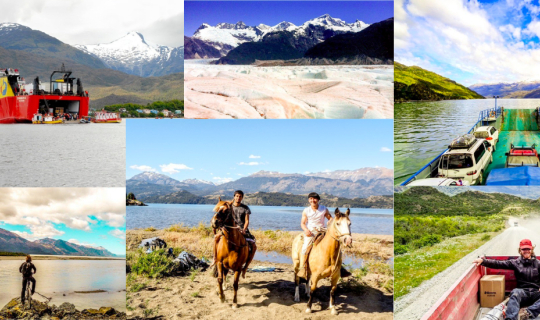It wasn’t part of the plan, when we decided to go to Patagonia de Chile, we had never heard of the Carretera Austral.
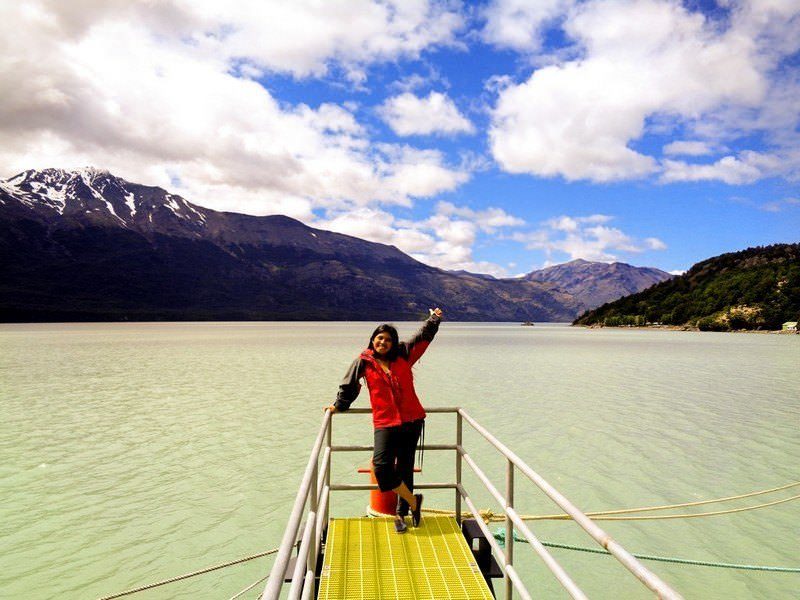
Part 1 – Puerto Montt to Puerto Rio Tranquilo
We arrived in the dingy port town of Puerto Montt filled with excitement and enthusiasm, despite the haze of the overnight bus journey from Santiago. This was the where our real adventure would begin, a long journey through the fjords of Chilean Patagonia to the world famous Torres del Paine National Park, home to some of the most stunning natural scenery on the planet. Lakes, rivers, mountains, glaciers and golden grasslands, all stitched together into a tapestry of contrasting shapes, colours and textures. And all this we gleaned from only photos!
Our excitement was short-lived however, when we arrived at the Navimag Ferries office, only to find that our lack of planning had let us down. It was high season in Chile so all ferries to Torres del Paine were fully booked. Travel by road requires crossing into Argentina, which one of us didn’t have a visa for and the flights were horrendously expensive. Our Patagonian adventure was over before it had even begun. But then someone suggested another option, the Carretera Austral – over 1000 km of wilderness and gravel track road winding all the way from Puerto Montt to Villa O’Higgins, a small town which marks the end of the road and ultimately the end of Chile. We had two options – take a chance on this unknown road, or turn back – with the latter being unthinkable, we chose the unknown!
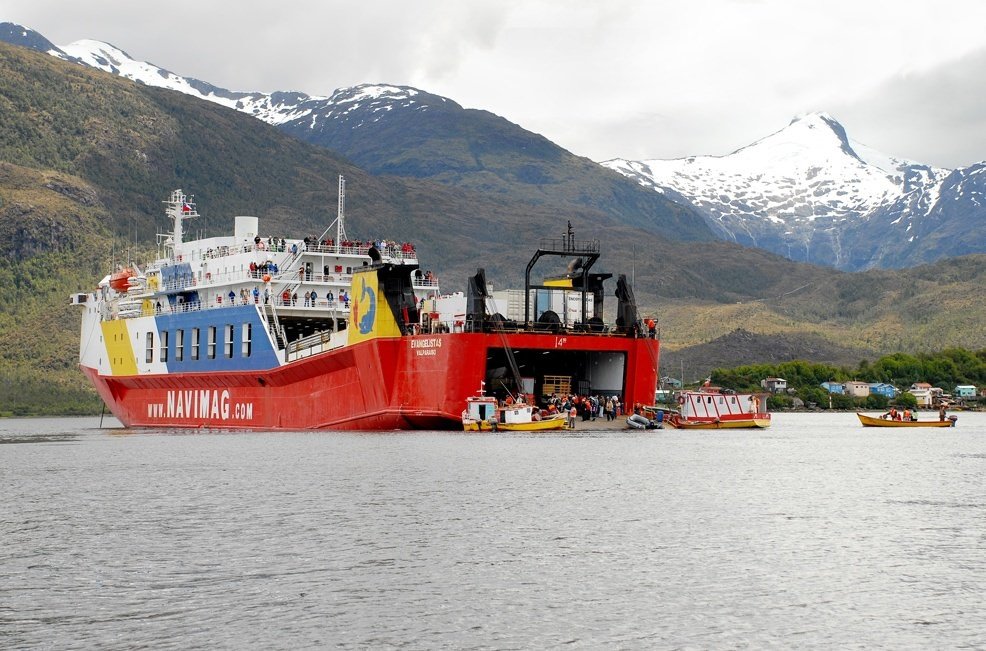
Patagonia de Chile – Carretera Austral (Photo – Navimag Ferries)
The next day we boarded a ferry which would take us to Puerto Aysen, in the Aysen region of Chilean Patagonia. From there we still had no idea what we would do when we arrived! The ship sailed for two nights and three days through the sheltered waters of fjords and islets, never much to see but the misty outline of the land on the horizon on either side. We amused ourselves by hanging out on the top deck and talking to other passengers in English and broken Spanish. One of these passengers was a beef farmer named Juan Pablo, who was traveling with his son Matteo and their two dogs from Santiago de Chile to their farm in Coyhaique, the capital of the Aysen region (Here’s the story on how we met them and the kindness we experienced). It was this chance meeting that would totally transform our experience in Patagonia.
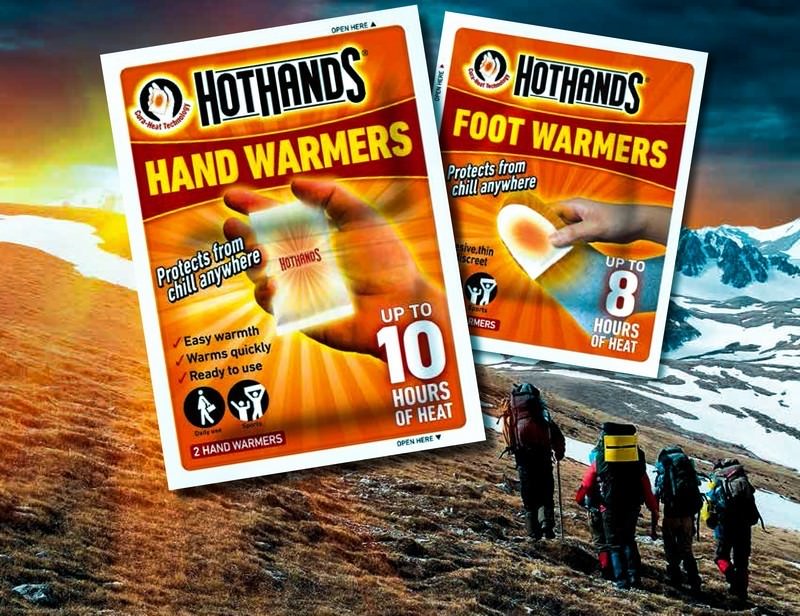
Patagonia de Chile – Carretera Austral – Hot Hands Hand Warmers (Advertiser)
We docked in the tiny port of Chacabuco, found a minibus to Puerto Aysen and from there another bus to Coyhaique, where we sat down to try and figure out our next move. Juan Pablo had given us his telephone number and told us to call him if we needed a place to stay, so we borrowed a phone from a friendly local in a restaurant and gave him a call. We stayed with Juan and Matteo in their farmhouse outside of town, set in one thousand hectares of pristine grazing land. On our third day on the farm we were joined by 3 Patagonian horsemen; tall men with broad shoulders, spurred boots and deep, commanding voices to match their strong, weathered faces. All day, from dawn till dusk, we watched as they herded masses of cattle from pen to pen, turning their wild-eyed mounts on their heels with speed, ease and precision. Like a choreographed performance on a stage of flying dirt and pounding hooves they moved, weighed and sorted over five hundred cattle from fields to waiting trucks. It was an incredible experience to watch such a raw and stunning process take place.
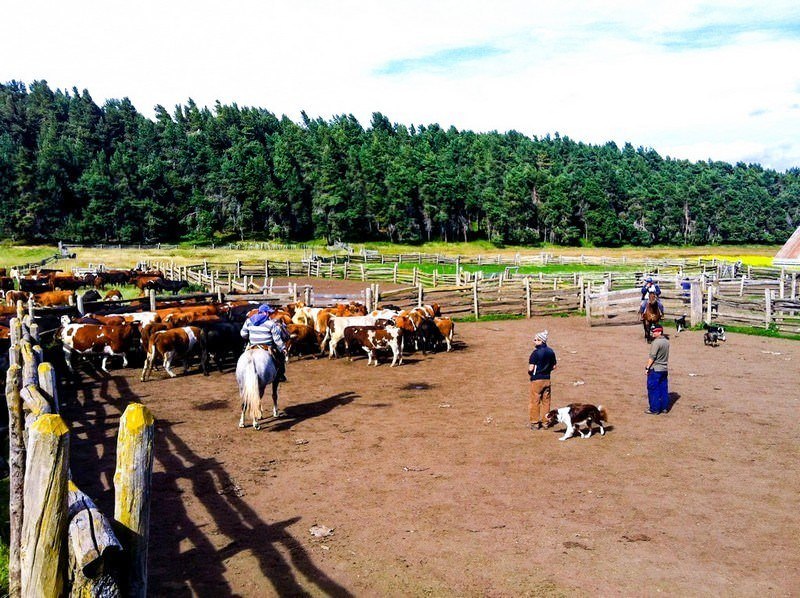
Patagonia de Chile – Carretera Austral
When it was time to move on from the farm and from Coyahique, we said our goodbyes to Juan Pablo and Matteo to continue our journey south, still with little idea of where we were headed. We had heard of a lake about 215 km south, filled with the purest glacial melt water and caves made of marble, so we scrawled Puerto Rio Tranquilo on a piece of cardboard we found at the side of the road and stood with our thumbs in the air. Within minutes a pickup pulled over to the side of the road and without a word, motioned to the open flat bed at the back. We jumped in, hunkering down against the biting wind and amazed at the scenery flying past us – Rolling green hills, thick forests and a perfect blue sky, dotted with white clouds and the outline of mountains in the distance. We jumped in and out of 4 different pickups over the course of the day, eventually finding ourselves at the side of the road, next to an old abandoned bus which had been converted into a restaurant where other hitch hikers and long distance cyclists were gathered. As we were eating the weather began to close in and what felt like fist-sized drops of rain began to fall from the sky. The impending storm continued to threaten as we walked outside to find our next ride, when as if by magic or some kind of serendipity, a small, shabby minibus pulled up alongside us and offered to take us the rest of the way for a small fee. Not feeling like getting soaked and freezing to death in another pickup, we jumped in for the final hour and a half to Puerto Rio Tranquilo.
End of Part 1 – Part 2 Continues below. . .

How to prepare for your own Patagonia Adventure
Patagonia is one of the last great wildernesses of the world and with the Carretera Austral having only been opened in the 1980’s and finally completed in 2000, the region has retained all of its untouched natural beauty. However, what makes this region so stunningly beautiful is also the reason you need to be well prepared. Vast expanses of wilderness and extremes of weather can be dangerous, so you need to make sure you have everything you need.
1. Plan – Know where you are going and how you are going to get there. If you’re travelling under your own steam, then you should calculate how far you will be able to travel in a single day and where you’re going to sleep.
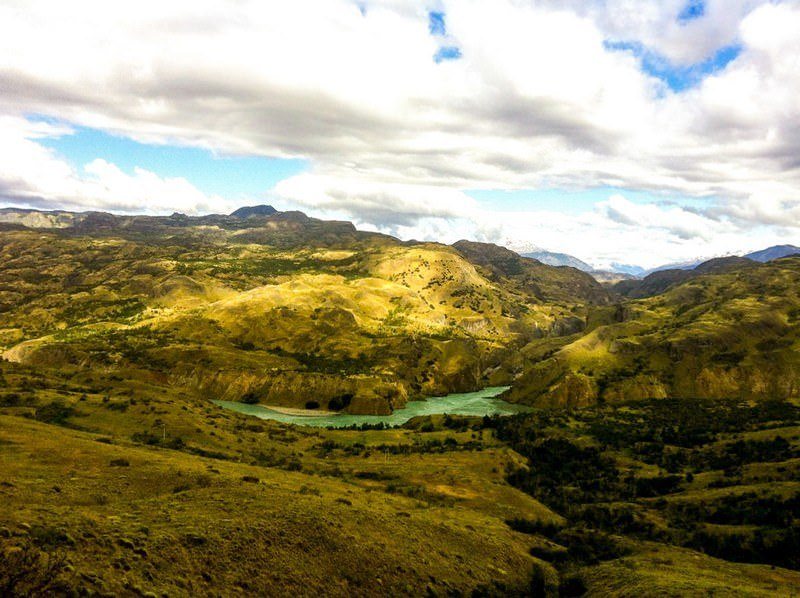
Patagonia de Chile – Carretera Austral – Miles of beautiful nothing
2. Prepare your body and mind – This is not a guided trek and even when hitch hiking there can be long stretches where you simply cannot get a ride. Make sure that you’re fit and healthy enough to walk for long distances, up and down hills with your pack on if needs be. If cycling you need to be equally fit, if not more so. Had the amazing German we met not been in such great shape, he would probably have had to give up on his dream adventure. You’ll meet him later in the story.
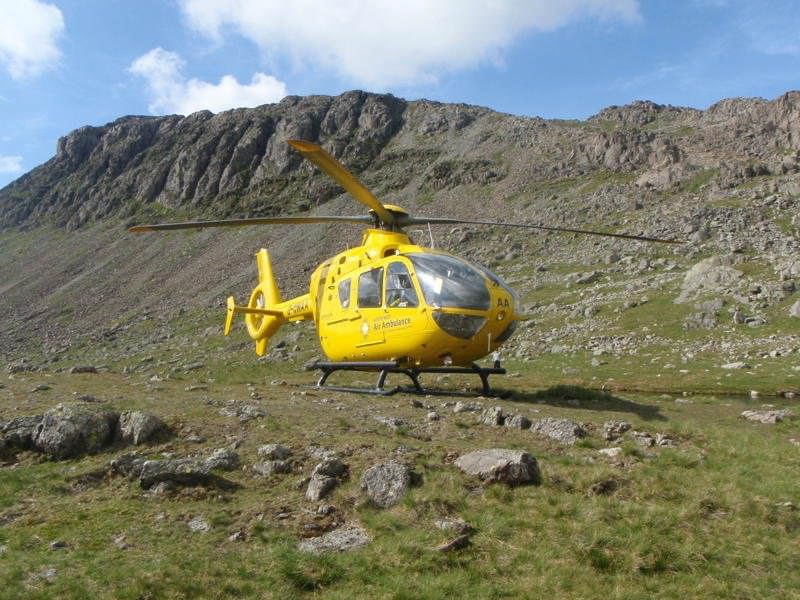
Patagonia de Chile – Carretera Austral – Unlikely to find this! (Photo – North West Air Ambulance)
3. Carry the right equipment – Even in the summer, the weather in Patagonia can turn on you and it’s the extremes of weather that can catch you out if you’re not careful. Here’s our recommended list of basic kit for travelling through Patagonia:
- Hiking Shoes or Boots – The road can be tough and very long, mostly make of gravel and loose rocks, so make sure you have the right footwear to handle it. Everyone is different and there are literally thousands of boots to choose from. As a minimum look for – ankle support, waterproof, breath ability, correct size and fit, a sturdy, shock-absorbing sole.
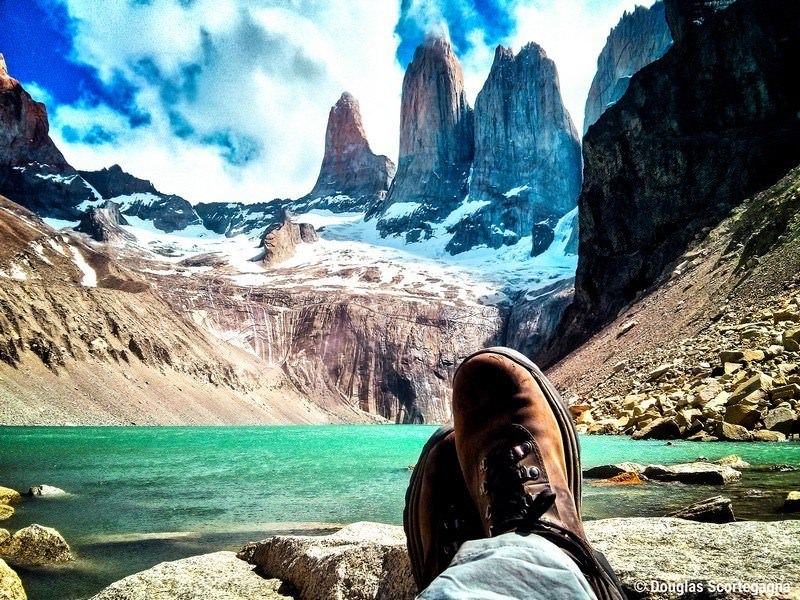
Patagonia de Chile – Carretera Austral – Your boots will take you there (Photo – Douglas Scortegagna)
- Clothing – The weather can range from baking hot in the strong sun, to freezing in the dark and rain, so it’s important that your gear can handle all conditions without weighing you down. Think lightweight, thermal, breathable and waterproof – it’s worth investing in quality gear that’s built for the job (like this one).
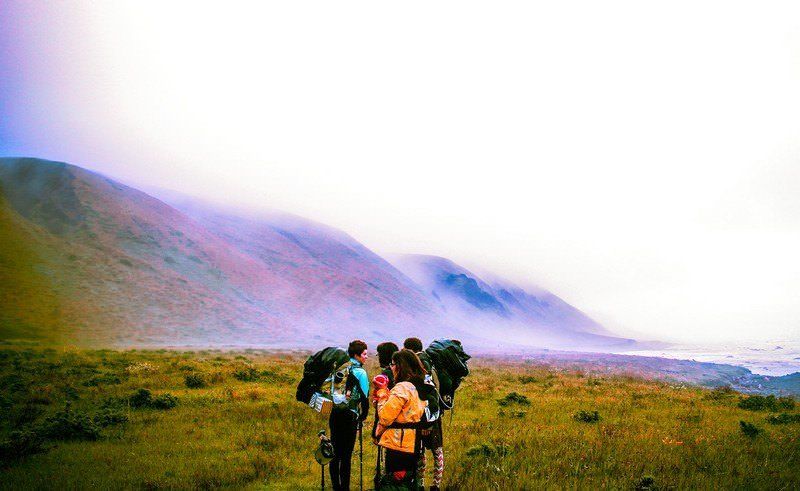
Patagonia de Chile – Carretera Austral – Get your gear right (Photo – Dangerous…Dan)
- Hand Warmers – Consider some extra comfort that you might not normally go for, like hand and foot warmers. Something as simple as having warm fingers and toes can take the edge off harsh conditions and give you the extra mental fortitude you need to keep pushing forward when the rest of you is cold, wet and exhausted! Choose a hand warmer that is made of natural materials and don’t require batteries or ignition, air activated options. The all natural materials in this form of warmer are bio-degradable, although you still can’t throw them on the floor!
- Tent and camping gear – As we already mentioned, some areas of Patagonia are just miles and miles of nothing. If you can’t get a ride, or your bike breaks, then you need to be able to pitch your tent, cook some hot food and crawl into a sleeping bag to rest until you can get going again the next day. We didn’t have a tent and we very nearly came to regret it several times. We got lucky, but you might not! Here’s our recommended tent for Patagonia.
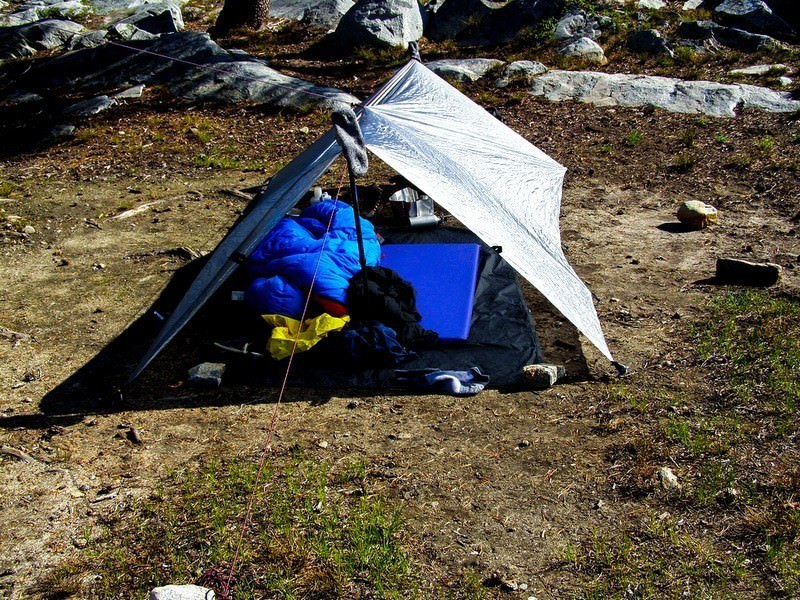
Patagonia de Chile – Carretera Austral – Be prepared to rough it (Photo Credit – glenngould)
4. Food and water – You’ll need lots of this! It seems like a very obvious piece of advice, but you need to carry all of the food and water you need for each day of your journey. Many famous treks have become so managed and touristic that it almost seems normal that there’s someone halfway up the side of a mountain selling bags of chips and soft drinks. Not on the Carretera Austral!

The Journey Continues…
Part 2 – Puerto Rio Tranquilo to Villa O’Higgins
The sun was setting as we arrived and the weather had well and truly set in, so we found a small hospedaje familial to spend the night, with wooden walls and a log burner in the living room. The next morning we awoke to see where we had arrived. Not actually a port, as the name suggested, but a small lakeside town on the shores of Lago General Carrera, the largest lake in Chile. Standing on the shoreline the view was spectacular; shimmering turquoise water stretching out toward the horizon, where a barrier of snow-capped mountain peaks soared upwards into the sky.
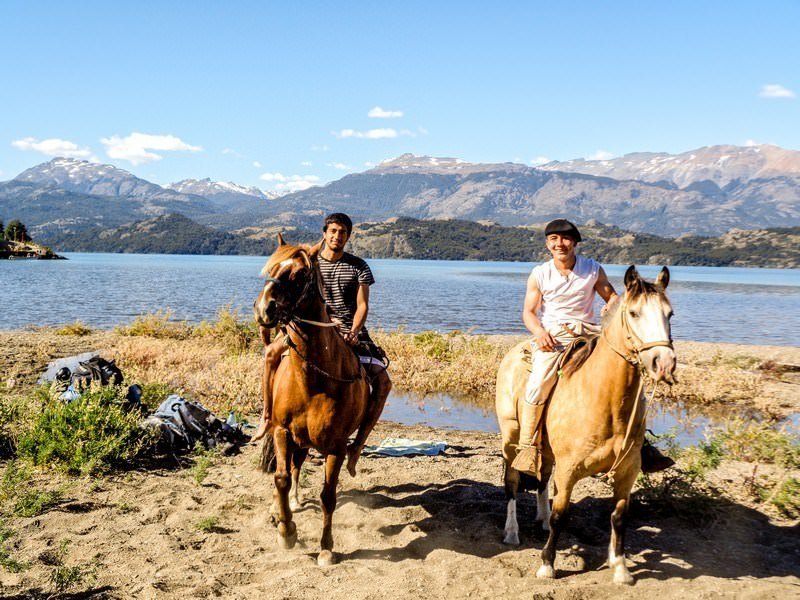
Patagonia de Chile – Carretera Austral
There were two things we wanted to do while we were here, visit the marble caves and trek across the nearby Exploradores Glaciers in the Northern Patagonian Ice-fields. The marble caves, which have been formed by the waves over the past 6000 years, are giant monoliths of solid marble rock which protrude from the water near the middle of the lake, many of which are large enough to pass a boat through. The inside of the caves are lined with multi-coloured patterns and swirling lines which almost seem to change as the moving water bounces light across their surface.
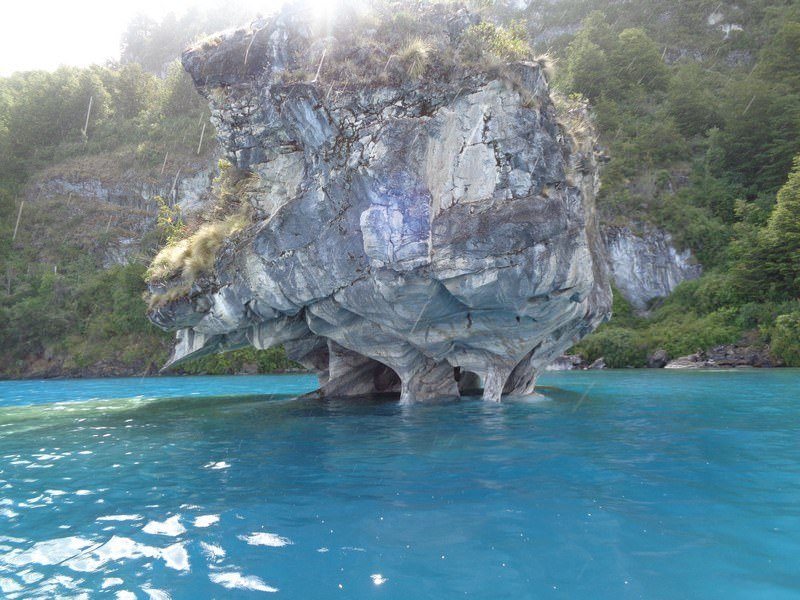
Patagonia de Chile – Carretera Austral – Marble Caves
The next day we arranged a glacier trek with Expediciones Explorasur. We set off early in the morning for the one-hour drive to the start of the trek, where we were first faced with a wall of massive broken rocks and boulders, all rubble left behind by the retreating glacier as it slowly melts away day-by-day. This was the hardest part of the trek, climbing over unstable moving rocks, slipping and tilting underfoot and threatening to pitch you face first into a painful experience. Once across the debris, we started our walk across the ice, which is a strange sensation when you begin to realise that the very ice you’re walking on is disappearing at an ever-increasing rate and is already predestined to disappear entirely – a sobering reminder of environmental change. The glacier is like an undulating mass of white, twisting and buckling in places, melt holes and caves providing amazement, amusement and photo opportunities, whilst again marking its inevitable disappearance. As we reached our furthest point on the glacier before turning around to head back, we paused to stare out at the bright, white moonscape and only then, in complete silence, could we hear the sounds of the glacier, the faint but powerful cracking and groaning of the ice against the rocks and the gurgling of melt water trying to escape.
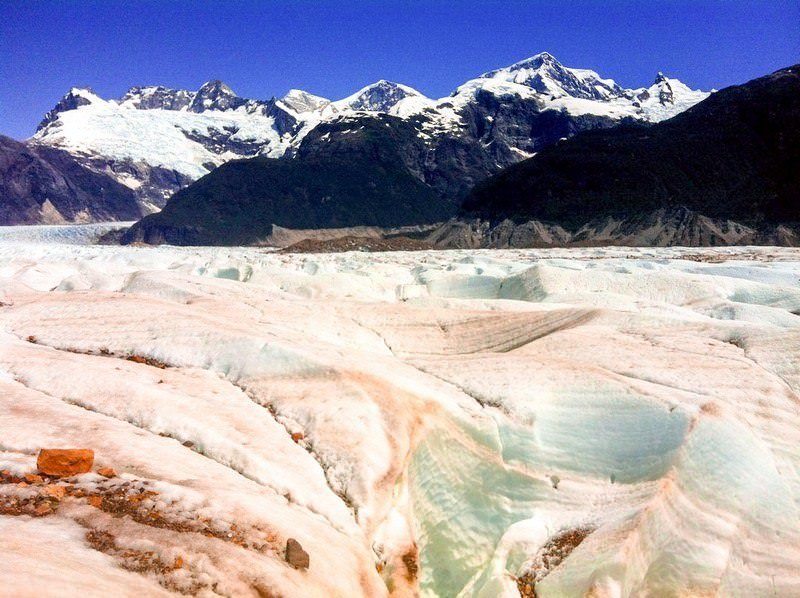
Patagonia de Chile – Carretera Austral – This is what silence looks like
Puerto Rio Tranquilo is the last point in the Carretera Austral which could be described as touristic, for the rest of the road only exists for those traveling to the deep south of the Patagonia, where the terrain becomes more rugged, the weather more extreme, the people and vehicles to carry them more scarce. We set off for our final destination – Villa O’Higgins – and the end of the Carretera Austral.
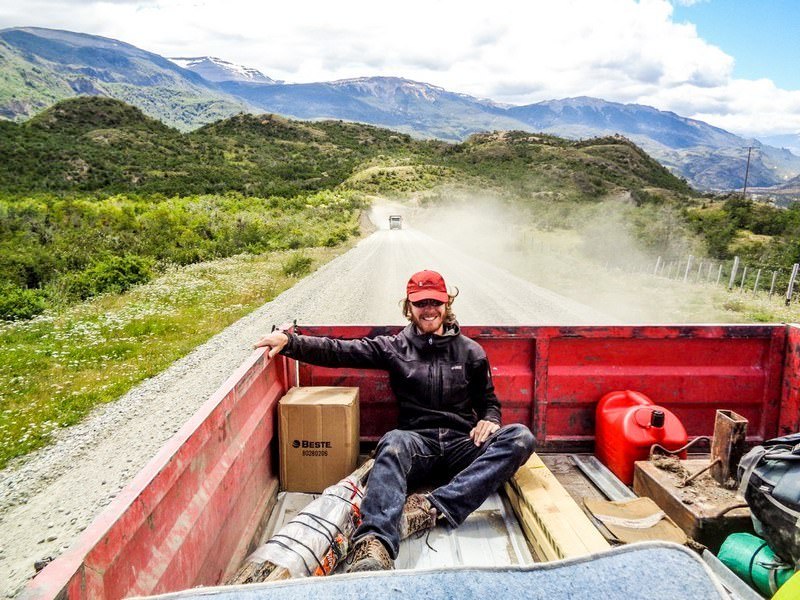
Patagonia de Chile – Carretera Austral – Free-riding!
For 4 days we trekked and hitch hiked our way south towards our final goal in all manner of transportation. We hitched in more pick-ups, flat-bed trucks, giant freight liners and even empty buses, meeting amazing people along the way. The true beauty of the Carretera Austral is the people it attracts – travellers in search of adventure, looking for a challenge and an unforgettable experience of a lifetime. The most memorable of these adventurers was a German man, who could have been in his late fifties, hauling a 30 kilo trailer behind him using a tree branch and a collection of old nylon straps, all because his old mountain bike had broken and he refused to give up on his epic journey! There is something about this road that inspires a will to continue, to push forward at all costs, something that I wonder could have been instilled by its creator, Augusto Pinochet, who oversaw the construction of the road by over 10,000 Chilean soldiers, many of whom lost their lives in the process. This incredible road is quite possibly the only positive result of the Pinochet dictatorship.
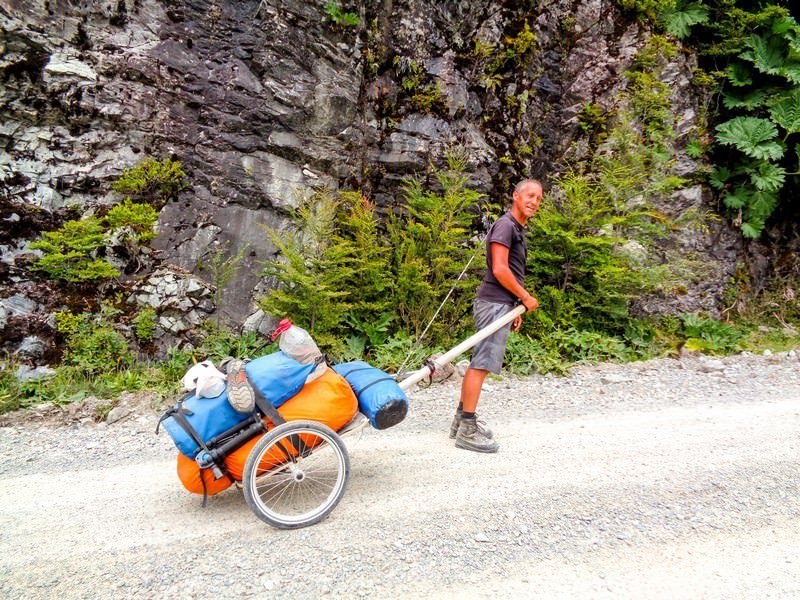
Patagonia de Chile – Carretera Austral – The incredible German!
The final stretch of our journey, from the tiny settlement of Tortel to Villa O’Higgins was the most arduous. The further south we ventured, the fewer people and cars we encountered, which made hitch hiking difficult and forced us to walk for many miles with heavy packs up steep mountain hills, through stinging rain and bitter wind. We finally caught a ride in a giant, yellow transporter, with a young German hiker we had befriended along the way. This took us to our final ferry crossing before the last stretch to our destination.
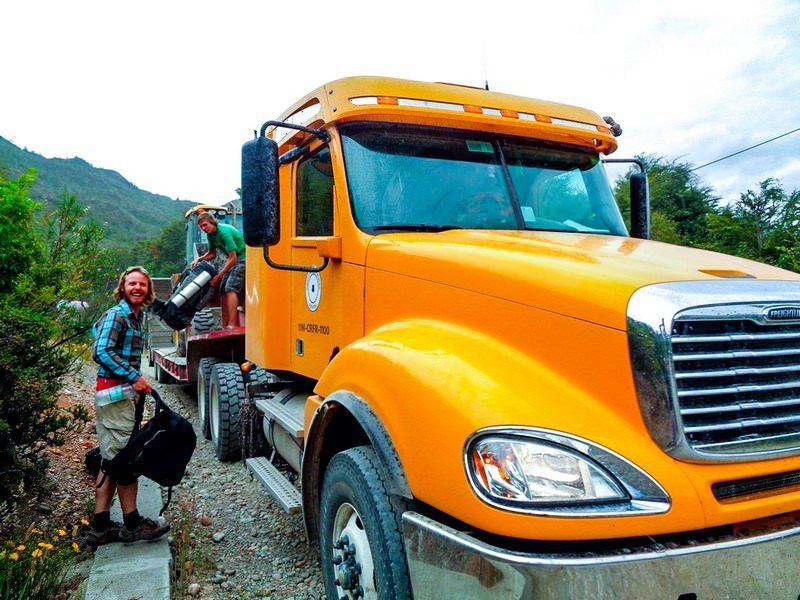
Patagonia de Chile – Carretera Austral – This guy saved us that day!
As we boarded the ferry we tried to figure out which car had space to carry us the final two hours to Villa O’Higgins, because if we couldn’t find a ride we would be stuck outside in the middle of nowhere, with no one and nothing for miles around. Amidst the rush of people clambering into their cars and trucks, we managed to plead our way into the back of the very same pick-up truck as the incredible German, who had managed to secure a seat inside the cab, leaving us to squeeze in between his trailer and the rest of the luggage.
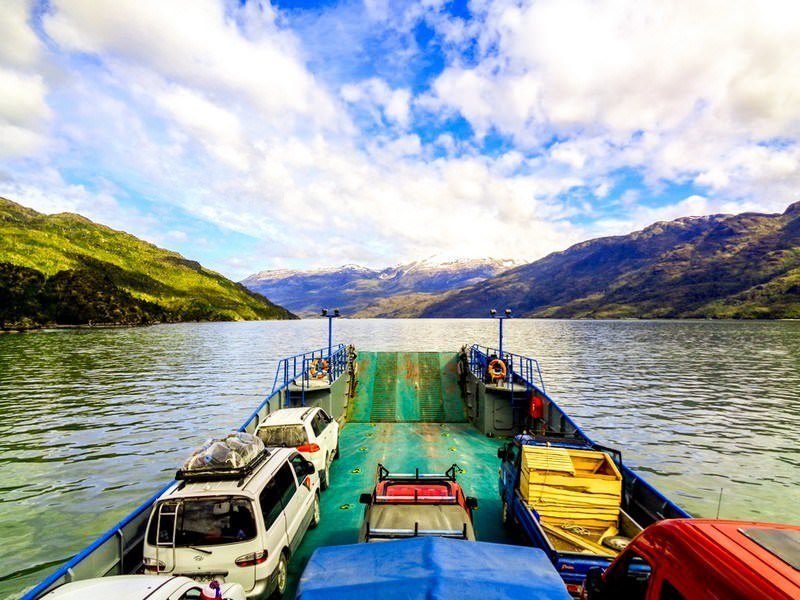
Patagonia de Chile – Carretera Austral – Incredible
For two hours we were showered with dust, stones, rain and even hailstones, bounced and bashed around as the driver raced to reach Villa O’Higgins before nightfall. We finally arrived, much in the same way as Puerto Rio Tranquilo, as the sun was setting and the air was becoming colder. So we walked into the first guest house we could find, ate some home-cooked food and passed out in satisfied exhausted, excited about what we would find the next day.
The next morning was the final part of our journey, just 7 kilometres by rented bicycle to the very end of the Carretera Austral. It was an easy ride along a fairly flat road, past fields where wild Patagonian horses grazed. When we reached the end of the road, it simply stopped, the dusty path sloping down into the dark, murky waters of Lago O’Higgins, with a small wooden sign the only thing of significance to indicate the journey we had just undertaken. There was nowhere else to go. For some there was the ferry journey across the lake to begin the 4 day trek through the mountains into Argentina, but for us the only way was back.
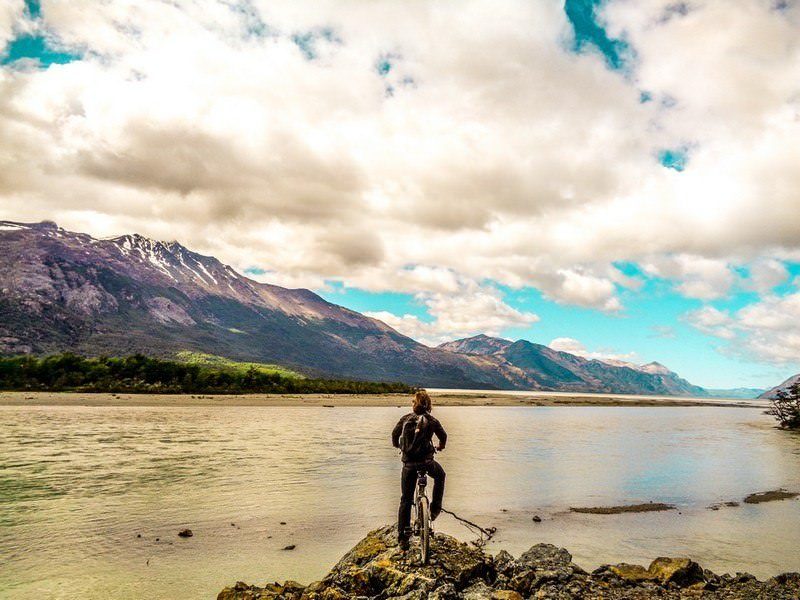
Patagonia de Chile – Carretera Austral – Lago O’Higgins
Finally, there we were, in the home of some of the most stunning natural scenery on the planet. Lakes, rivers, mountains, glaciers and golden grasslands, the beautiful natural tapestry we had imagined. We had found exactly what we had set out in search of, just not where we had been looking for it.
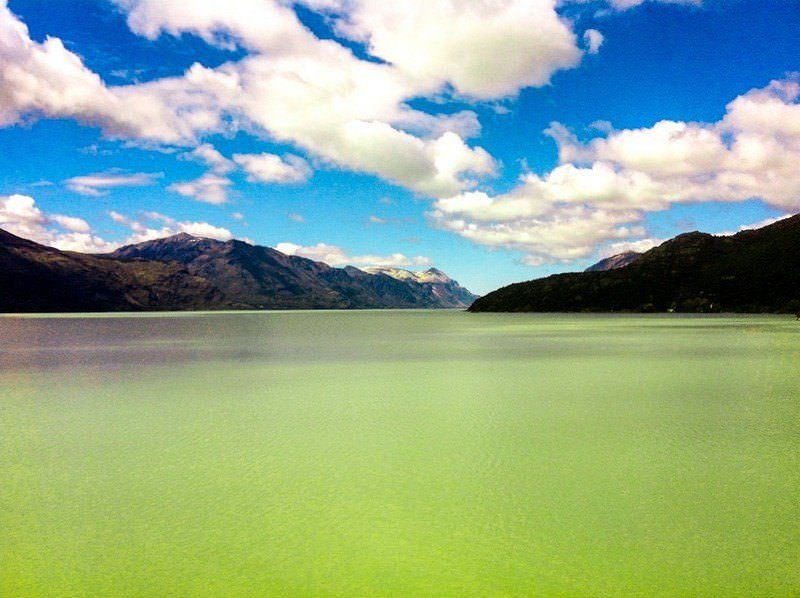
(Note: This article does include a small amount of paid advertising, but they did not sponsor this adventure. Besides, they would have kept us warmer in the back of that last pick-up truck!)
Are you on Pinterest? Pin these!
Kach Umandap
Thursday, November 17, 2022 10:52 PM

